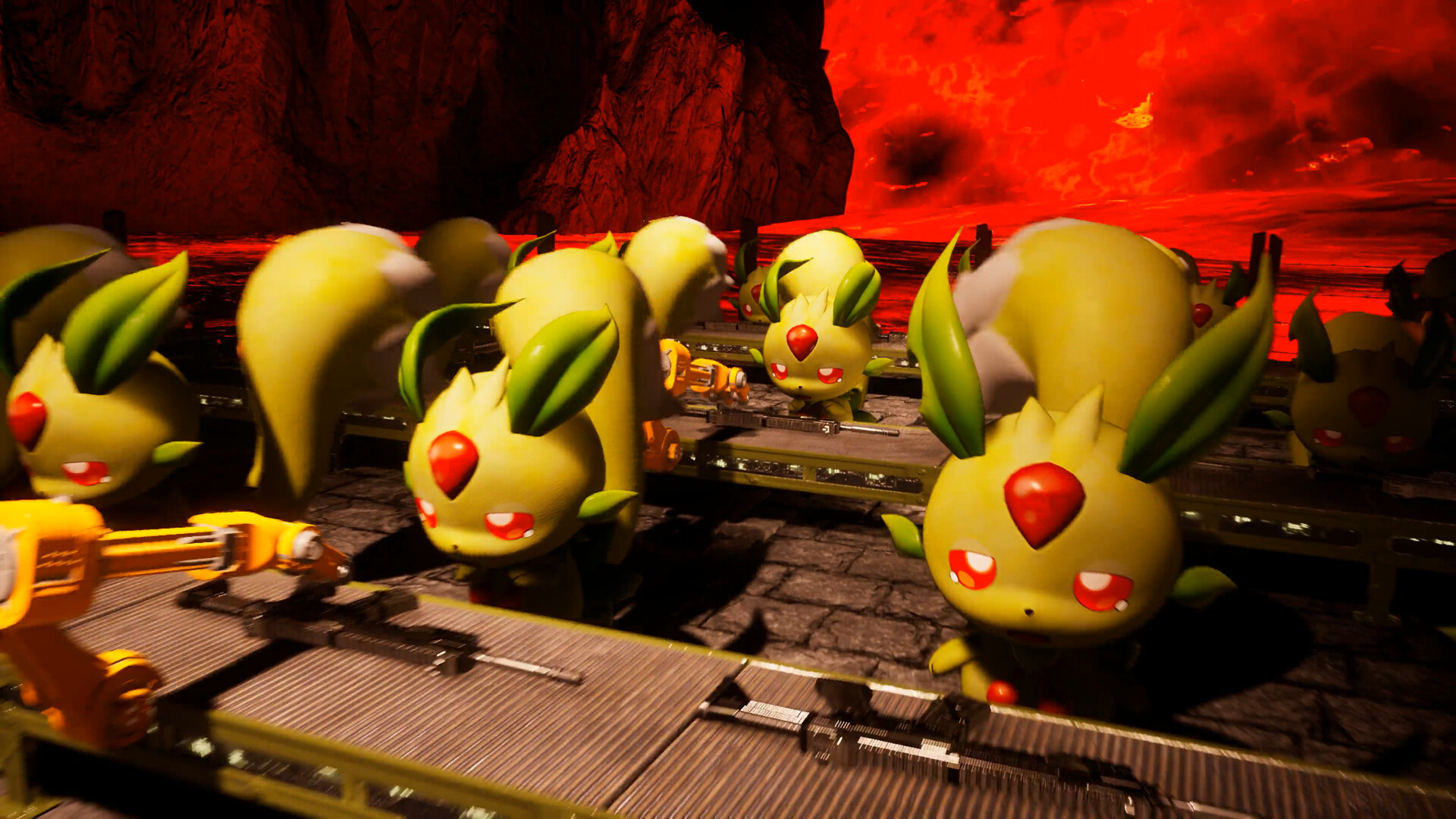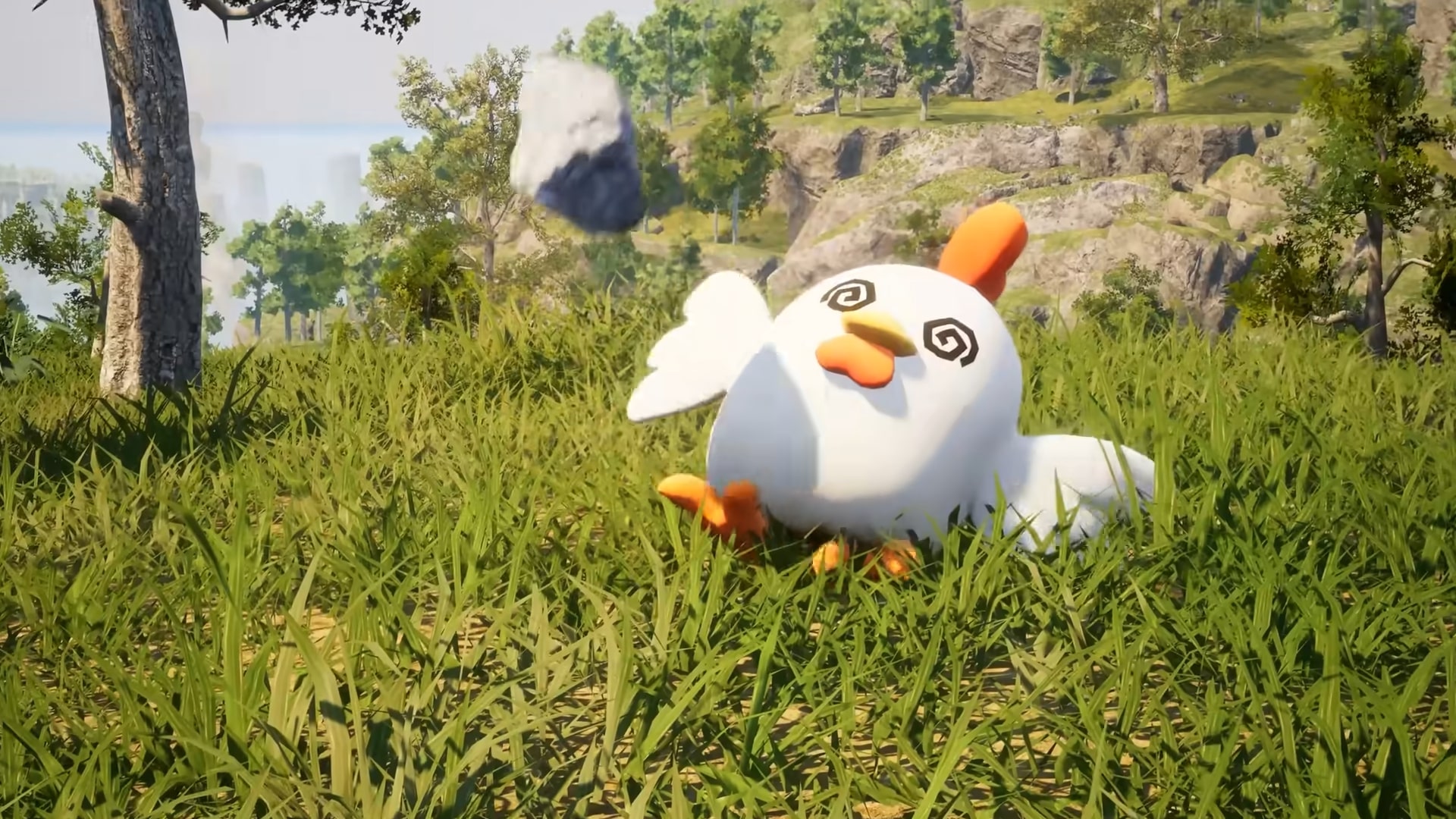Nintendo lawsuit could see Palworld reworked or removed and is an investment in "unspoken fear," lawyer says: "Don’t cross us and we won’t do it to you"
An injunction against Palworld could have multiple effects

Nintendo's patent lawsuit against Palworld has been interpreted differently by a range of law and industry experts, with some expecting the ensuing legal battle to run long, some arguing that Nintendo wouldn't make a move unless it was sure it could win in court, and others reckoning this may be a reach for the company's well-known legal team.
Haley MacLean, a lawyer at Voyer Law who specializes in video games, says it's currently difficult to predict the effects of the suit since we don't even know the patents in question, though there's fair speculation that a Pokeball-related patent is in the mix, but she sees room for outcomes including reworks to Palworld's mechanics and the survival game being temporarily or permanently removed from stores.
Speaking with GamesRadar+, MacLean unpacks Nintendo's terse statement revealing the lawsuit. "For Japan (and a lot of other jurisdictions too), patent infringement is the unauthorized commercial workings of a third party of a [claimed] invention," she explains. "The scope of whatever is protected under the patent(s) determines the consideration for whether an act then constitutes infringement against said scope. There is both direct infringement, and indirect infringement as well. Without getting overly complicated, Nintendo has to prove Pocketpair’s commercial actions infringed on their patent(s) and they did not give them consent to do so."
"Japan may have more case law compared to, say, the US that points towards the success of a finding of infringement for the specific patents Nintendo is leveraging," she adds. "They may have even won previous infringement cases on the patents they are intending to leverage against Pocketpair in Japanese courts in the past." She points to Nintendo's successful lawsuit against Japanese company Colopl in 2017, which was based on six separate patents. We don't yet know if any of those same patents are involved in this Palworld suit, but the root precedent is there.

Nintendo claims Palworld likewise infringes on "multiple" patents, and MacLean stresses that the company has "dozens and dozens of patents not just on game mechanics but game menu functionality, touch screen functionality, controller functionality, console functionality" and more. If Nintendo can successfully argue that Palworld is using its ideas without consent, Pocketpair could end up facing a range of changes, penalties, or other requirements. As a reminder, Nintendo's initial post reads:
"The lawsuit seeks an injunction against the defendants and compensation for damages, alleging that the game 'Palworld' developed and sold by the defendants infringes multiple patents."
Some experts expect the case to be settled out of court with a lump sum settlement, and likely a sizable one given Palworld's success and Pocketpair's deepened pockets. "Legal game issues so often get settled outside of court, but a prediction to what that settlement might look like and the amount it might be is something no one person could determine without having access to all the facts of the issues," MacLean says.
Sign up to the GamesRadar+ Newsletter
Weekly digests, tales from the communities you love, and more
She has an easier time envisioning outcomes such as: "(1) Pocketpair not being allowed to re-release in certain jurisdictions, (2) Pocketpair having to pay licensing fees and getting to keep any infringing mechanics (3) Pocketpair having to completely remove the patented mechanics from Palworld and relaunch (4) injunction periods where Palworld has to be removed from all stores for a period of time, etc." If such an injunction were enforced, it may only be temporary and "might only be for certain jurisdictions." But naturally, "Nintendo would try and expand that injunction as wide as possible while Pocketpair would try to limit it as much as possible."
MacLean agrees with the sentiment that Palworld's global success, as well as its widely reported multiplatform and multimedia and merchandising efforts, would've chummed the waters and helped push Nintendo to take action. Famously litigious as it is, it wouldn't go after just anyone in court. "Just look at Etsy. Thousands upon thousands of Pokémon keychains, t-shirts and figures made without consent from Nintendo, but the legal costs to send a letter to all of those persons likely wouldn’t be worth it financially for them."
For Nintendo, there's also another benefit to this type of legal action, MacLean adds. "Nintendo would also be viewing enforcements like these as a sort of investment in imposing an unspoken fear of retribution in the marketplace for other companies, as in, ‘Look what we did to this guy, don’t cross us and we won’t do it to you too.' Even if they don’t intend to enforce these patents ever again, the fear would still be there to deter other companies."

Austin has been a game journalist for 12 years, having freelanced for the likes of PC Gamer, Eurogamer, IGN, Sports Illustrated, and more while finishing his journalism degree. He's been with GamesRadar+ since 2019. They've yet to realize his position is a cover for his career-spanning Destiny column, and he's kept the ruse going with a lot of news and the occasional feature, all while playing as many roguelikes as possible.


